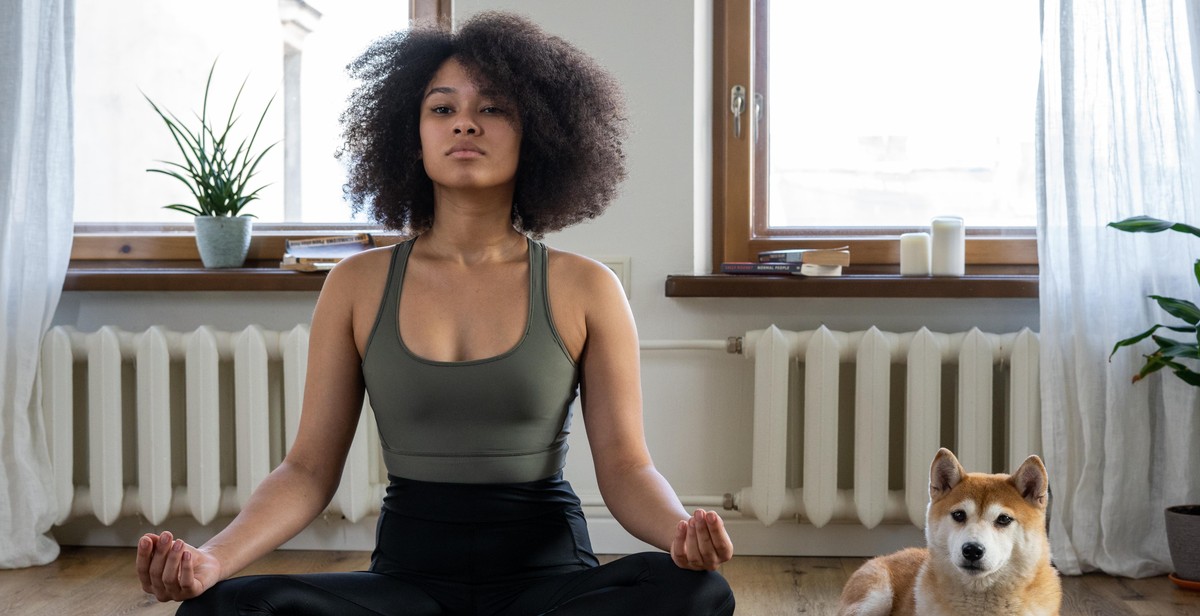How to Incorporate Meditation into Your Daily Routine for Mental Well-Being
Meditation is a practice that has been around for thousands of years and has been proven to have numerous benefits for our mental and physical health. It is a simple technique that involves focusing your attention on a particular object, thought or activity to achieve a mentally clear and emotionally calm state. Incorporating meditation into your daily routine can help you reduce stress, anxiety, and depression, as well as improve your overall well-being.
The Benefits of Meditation
Studies have shown that meditation can have a positive impact on our mental and physical health. Some of the benefits of meditation include:
- Reduced stress and anxiety
- Improved sleep quality
- Increased focus and concentration
- Enhanced emotional well-being
- Lowered blood pressure and reduced risk of heart disease
- Boosted immunity
How to Incorporate Meditation into Your Daily Routine
Now that you know the benefits of meditation, you may be wondering how to incorporate it into your daily routine. Here are some simple steps:
- Choose a time and place where you can meditate without being disturbed.
- Sit comfortably with your back straight and your eyes closed.
- Focus on your breath and try to clear your mind of any thoughts.
- Start with a few minutes of meditation and gradually increase the duration.
- Try to meditate at the same time every day to make it a habit.
With a little practice, you can easily incorporate meditation into your daily routine and reap the benefits of this ancient practice for your mental and physical well-being.
What is Meditation?
Meditation is a practice that involves training your mind to focus and achieve a state of calmness. It is a technique that has been used for thousands of years to promote relaxation and improve mental health. Meditation is often associated with spiritual practices, but it can be practiced by anyone, regardless of their religious beliefs or cultural background.
Definition of Meditation
Meditation is a mental exercise that involves focusing your attention on a particular object, thought, or activity to achieve a state of mental calmness and relaxation. It is a practice that helps you to become more aware of your thoughts and emotions, and to develop a greater sense of clarity and focus.
Benefits of Meditation
There are numerous benefits of meditation, both for your mental and physical health. Some of the most significant benefits include:
- Reduced stress: Meditation can help to lower your stress levels by calming your mind and reducing the production of stress hormones like cortisol.
- Better sleep: Meditation can improve the quality of your sleep by promoting relaxation and reducing the symptoms of insomnia.
- Improved focus: Meditation can help to improve your concentration and focus, making it easier to stay on task and complete your work more efficiently.
- Lowered anxiety: Meditation can help to reduce symptoms of anxiety and depression by promoting a sense of calmness and relaxation.
- Reduced pain: Meditation has been found to be effective in reducing chronic pain by helping to manage pain perception.
- Improved immune system: Meditation can help to boost your immune system by reducing stress and promoting relaxation.
Overall, incorporating meditation into your daily routine can have a significant positive impact on your mental and physical health. It is a simple yet powerful practice that can help you to find greater peace, happiness and well-being in your life.

How to Incorporate Meditation into Your Daily Routine for Mental Well-Being
Meditation is a powerful tool that can help you achieve mental clarity, reduce stress, and improve your overall well-being. However, incorporating meditation into your daily routine can be challenging, especially if you are new to it. Here are some tips to help you get started:
Choose a Time and Place
Find a quiet and comfortable place where you can meditate without any distractions. Choose a time that works best for you, whether it’s early in the morning, during lunch break, or before going to bed. Make sure to stick to your chosen time and place to establish a routine.
Start Small
Starting with just a few minutes of meditation each day can help you build a habit without overwhelming yourself. Gradually increase the duration of your meditation sessions as you become more comfortable with the practice.
Set Realistic Goals
Set realistic goals that you can achieve. Don’t expect to become an expert meditator overnight. Instead, focus on developing a consistent practice and gradually improving your skills over time.
Experiment with Different Types of Meditation
There are many different types of meditation to choose from, such as mindfulness meditation, guided meditation, and mantra meditation. Experiment with different types to find the one that works best for you. You can also try different techniques within each type of meditation to keep your practice fresh and interesting.
By following these tips, you can easily incorporate meditation into your daily routine for mental well-being. Remember to be patient with yourself and enjoy the journey.

Tips for Making Meditation a Habit
Meditation is a powerful tool for improving mental well-being, but it can be challenging to make it a consistent part of your daily routine. Here are some tips to help you make meditation a habit:
Be Consistent
Consistency is key when it comes to meditation. Aim to meditate at the same time each day, whether it’s first thing in the morning or before bed. This will help you establish a routine and make it easier to stick to your practice.
Start with just a few minutes of meditation each day and gradually increase the time as you become more comfortable with the practice. Even just five minutes a day can make a difference in your mental well-being.
Use Reminders
Set reminders on your phone or computer to help you remember to meditate. You can also use physical reminders, such as placing a meditation cushion or a picture that inspires you in a prominent place in your home or office.
If you find yourself struggling to remember to meditate, try linking your practice to a specific daily activity. For example, you could meditate right after brushing your teeth each morning.
Make it Enjoyable
Meditation doesn’t have to be a chore. Experiment with different types of meditation to find what works best for you. You could try a guided meditation, a mindfulness meditation, or a mantra meditation.
Find a comfortable place to meditate, whether it’s a quiet corner of your home or a park bench outside. You can also experiment with different props, such as a meditation cushion or a blanket, to help you get into a comfortable position.
Remember, meditation is a practice, not a perfect. Don’t beat yourself up if you miss a day or struggle to focus during your practice. The most important thing is to keep showing up and making meditation a regular part of your daily routine.
Conclusion
Meditation is a powerful tool that can help you to improve your mental well-being and overall quality of life. By incorporating meditation into your daily routine, you can reduce stress, anxiety, and depression, improve focus and concentration, and boost your overall sense of well-being.
There are many different types of meditation, and it’s important to find the one that works best for you. Whether you prefer guided meditations, mindfulness practices, or mantra meditation, there is a style of meditation that will suit your needs.
When starting out with meditation, it’s important to be patient and persistent. It may take some time to see the benefits, but with regular practice, you will begin to notice positive changes in your mental health and overall well-being.
To get started with incorporating meditation into your daily routine, consider setting aside a specific time each day for your practice. This could be first thing in the morning, during your lunch break, or before bed. You can also try incorporating meditation into other activities, such as yoga or walking.
Remember, the most important thing is to make meditation a consistent part of your routine. With time and practice, you will begin to experience the many benefits of this powerful practice.
